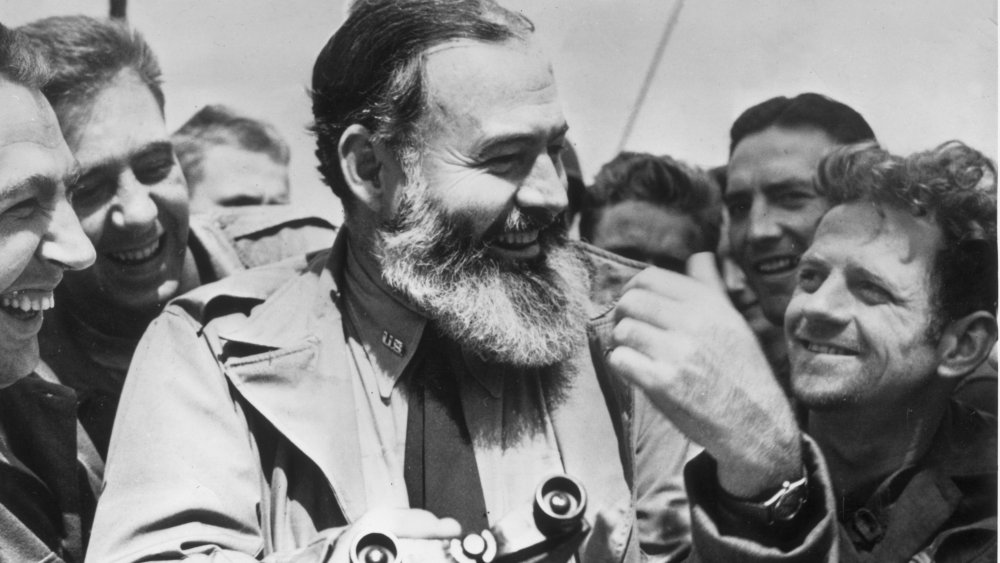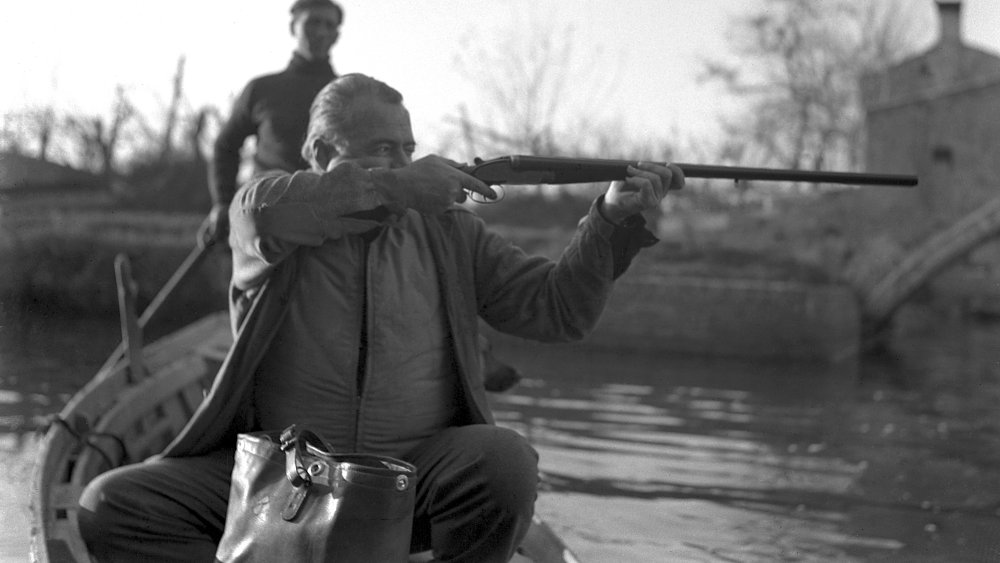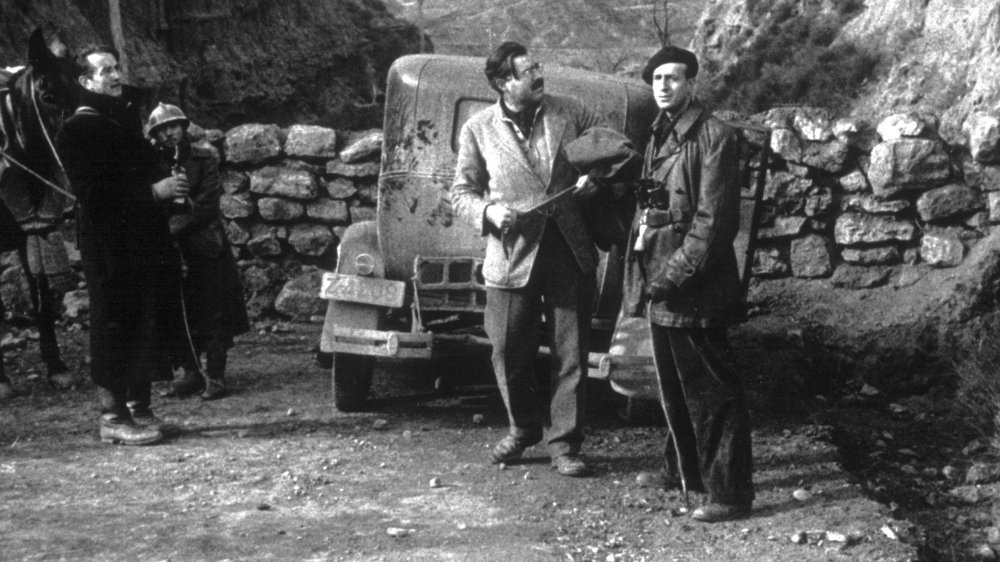What You Didn't Know About Ernest Hemingway's Life As A Spy
In the pantheon of great American writers, Ernest Hemingway is among the greatest. Not only has he written some of the most memorable novels in American literature, but his personal exploits have fascinated generations of readers.
Hemingway drove ambulances In World War I (and was injured), and covered the Spanish Civil War as a journalist. These were all highly publicized, mainly because Hemingway himself used these experiences in his novels — World War I was a particularly favorite subject. But little did people know that Papa, as Hemingway was sometimes called, was also a spy. No, not just for the US, but for the Soviet Union.
This bombshell news first came out in 2017 after former CIA archivist Nicholas Reynolds released the book Writer, Sailor, Soldier, Spy: Ernest Hemingway's Secret Adventures, reported NPR. According to Reynolds, Hemingway already had some experience in espionage. In an article in the journal Studies in Intelligence, Reynolds wrote that Hemingway was tapped by the Office of Strategic Services (the precursor to the CIA), the Office of Naval Intelligence (ONI), and even the FBI for his contacts. When he was living in Cuba, Hemingway met the American ambassador Spruille Braden and his subordinate Robert P. Joyce. In conversations, Hemingway may have offered his services to help the war effort in World War II. While he may have meant it in a more general way, Braden suggested Hemingway keep an eye out for Axis spies in Cuba.
Old man and his fishing boat in Cuba
But Hemingway's time as a spy in Cuba was not very fruitful. One enemy spy was discovered there, but he was unmasked by the British intelligence service. Later on, Hemingway got the idea to do something a lot more involved than drinking with people and figuring out if they were German spies. Reynolds wrote that Hemingway suggested it would be a far better use of his time if he patrolled the coast of Cuba, on the lookout for German U-Boats. His plan, as he explained to Braden, was to pretend he was fishing. Then, when he spotted the U-Boat, he would wait until they stopped to buy fish and then shoot them with bazookas, machine guns, and hand grenades. He may have been a brilliant writer, but Hemingway was definitely not a military strategist.
In the end, the ONI decided just to send Hemingway only enough gear to make it seem viable. They allowed him to patrol the waters of Cuba in secret, but they didn't expect much. Hemingway did spot a German submarine, but it apparently sailed off and never stopped.
Eventually, the US government turned its attention elsewhere, and Hemingway's operation was terminated. This was to the delight of the FBI who, along with already monitoring Hemingway for reasons only J. Edgar Hoover really knows, thought he was too much of a drunkard to be an effective spy.
He wasn't a good spy
It was Hemingway's work with the Soviets that really surprised people. According to Reynolds's book, Hemingway was approached by the People's Commissariat for Internal Affairs (NKVD), the forerunner to the KGB.
Hemingway was staunchly anti-fascist. Stemming from his experiences in Spain, when he fought at the side of Spanish rebels during the war, Hemingway believed fascism had to be stopped, no matter what. He made no secret that he was disappointed by the US stance of neutrality. As explained by NPR, the only serious support the rebels received came from the Soviet Union.
According to History, the NKVD recruited Hemingway on "ideological grounds." Though it's unclear why they thought Hemingway was a perfect candidate, they gave him the mission name "Argo." It seemed though that even for the Soviets, Hemingway was no James Bond, and he produced no actionable intelligence. It'ss possible they only recruited him for his ability to shape propaganda. Even then, Hemingway never wrote about his time working for the NKVD, nor did he ever hold allegiance to communism. He even worried privately to friends that his time liaising with the Soviets might make him a target for the fervent anti-communism fueled by McCarthyism.
Today, Hemingway is celebrated for his ability to wield prose, but while he was also very preoccupied with masculinity and sought adventures to prove his worth, spying was just not his thing. Leave that to real spies, like Ian Fleming.


